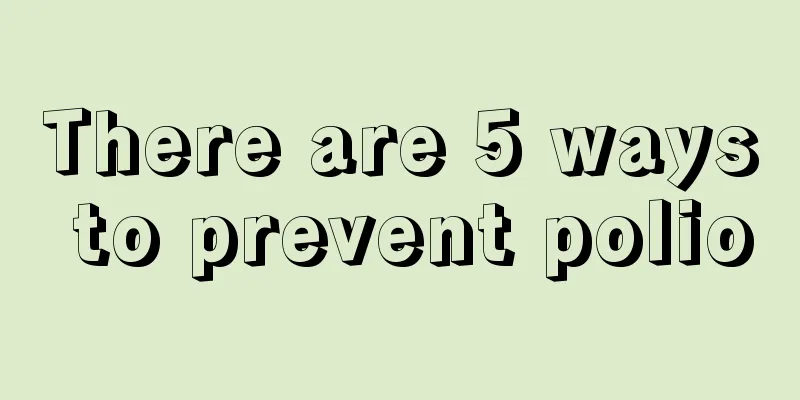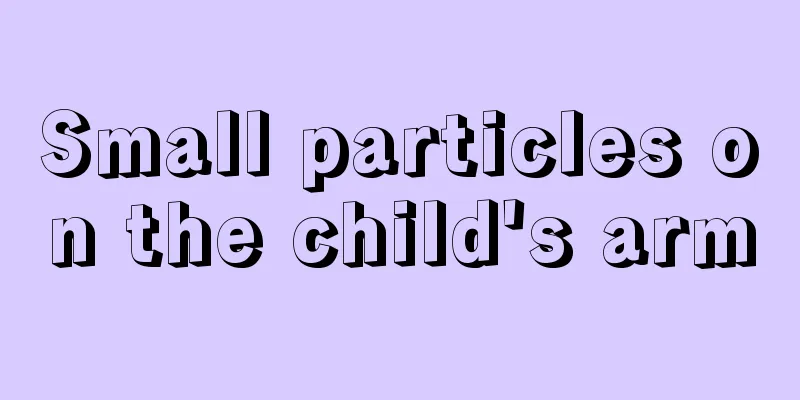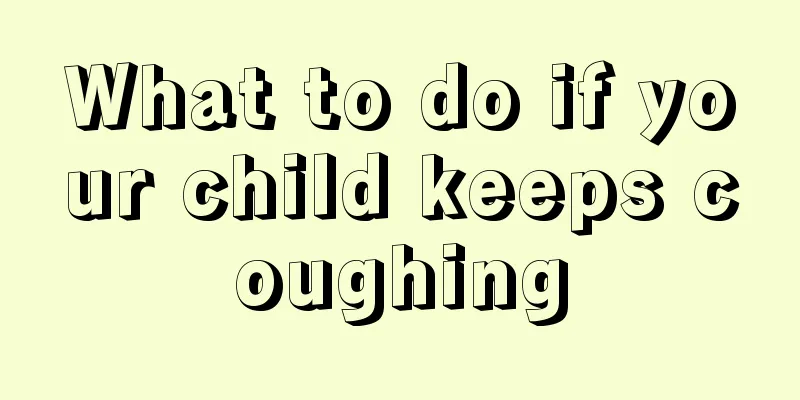There are 5 ways to prevent polio

|
As we all know, polio is extremely harmful to children's health, so it is particularly important to understand the preventive measures for polio. In fact, there are five preventive measures for polio in life. The first one is to take polio vaccine. (1) Taking polio vaccine my country currently uses a mixed sugar pill vaccine of types I, II and III, which is made from attenuated polio virus. Susceptible children aged 2 months to 7 years are the main recipients of the vaccine, but children of other ages and susceptible adults should also be vaccinated. Large-scale vaccination should be carried out in winter and spring, starting 2 months after birth. Do not take the vaccine with hot water to avoid inactivating the virus in the vaccine and making it ineffective. Sugar pill vaccines are divided into type 1 (red), type 2 (yellow), type 3 (green), type 2 and 3 mixed sugar pill vaccine (blue), and type 1, 2, and 3 mixed sugar pill vaccine (white). It can be taken from 2 months old, orally in three doses. You can take 1 pill of type 1, 2, and 3 each time in sequence, or take 1 pill of type 1, 2, and 3 mixed vaccine each time. The latter has proven to have good immune effects, requires fewer doses, and is less likely to be missed, so my country has gradually switched to a three-type mixed vaccine. Each oral administration should be separated by at least 4 to 6 weeks, preferably 2 months, to avoid possible interference. To strengthen immunity, it can be repeated once a year for 2 to 3 years, and once again before school entry at the age of 7. Type-specific antibodies can be produced in the body about 2 weeks after oral vaccination, reaching a peak within 1 to 2 months, then gradually weakening. After 3 years, half of the children have significantly decreased antibodies. Clinical use of this vaccine is safe, convenient, has strong immunity and lasts for a long time, has very few adverse reactions, and is very popular among parents. (2) Children should be isolated for at least 40 days from the onset of illness In the first week, emphasis should be placed on both respiratory and intestinal isolation. Excrement should be blocked and disinfected with 20% bleach. Tableware should be soaked in 0.1% clarified bleach or boiled for disinfection, or exposed to sunlight for two days. The ground should be disinfected with lime water. The hands of contacts should be soaked in 0.1% clarified bleach or disinfected with 0.1% peracetic acid. Susceptible persons who have close contact should be isolated and observed for 20 days. Young children who have not received the vaccine, pregnant women, medical personnel, immunocompromised people, susceptible children with a history of close contact after local surgery such as tonsillectomy, if they have close contact with patients, can be clinically injected with immunoglobulin for prevention. The dose is 0.3-0.5 ml per kilogram of body weight, or 6-9 ml of placental globulin, once a day for 2 consecutive days. The symptoms of the patient can be alleviated within one week after the injection. If the patient has not developed the disease after 2-5 weeks of infection, it means that passive immunization is successful and the child has been effectively protected. (4) Pay attention to children’s daily dietary hygiene In daily life, children should be encouraged to wash their hands before and after meals, and not eat unclean food. Attention should be paid to the disinfection of children's clothes, bed sheets, toys, supplies and tableware. It is best to boil them for 15 minutes or expose them to sunlight for two hours. (5) Maintain good environmental hygiene Eliminating flies is also a very important aspect of cutting off the source of infection. Properly arranging children's rest and nutrition and avoiding excessive fatigue and cold can enhance children's resistance to disease. |
<<: There are 8 quick remedies for toothache in children
>>: There are 6 ways to diagnose polio
Recommend
What should I do if my baby has diarrhea while teething?
A baby is the top priority of a family. As long a...
Massage methods for children to enhance their immunity
Children's resistance is relatively poor, esp...
The child has itchy skin at night without any pimples
If children experience itching symptoms on their ...
What should I do if my child’s throat is always inflamed?
Talking too much and the weather getting cold can...
What are the best ways to reduce fever in children?
When a child has a fever, what parents want most ...
What are the treatments for oral ulcers in children?
Oral ulcers in children are a very common problem...
Massage treatment for children's cough
Coughing in children is quite common. The common ...
What to do if mixed feeding causes constipation
As children develop, breastfeeding alone can no l...
What should I do if my baby has separation anxiety?
Children are more dependent on adults. They will ...
What to do if you can't urinate anywhere
People sometimes don't pay much attention to ...
How does traditional Chinese medicine treat children’s allergic cough?
I believe many people are familiar with coughing....
Can children drink cocktails?
We drink a lot of cocktails in our daily life, ma...
Nursing measures for infantile labia adhesion
Every child is born healthy, but many babies will...
At what age does body odor appear in children? At what age does hereditary body odor appear?
Body odor is a skin disease that can easily cause...
What's wrong with my baby having fever, diarrhea and cough?
Babies always get sick for unknown reasons, and t...









